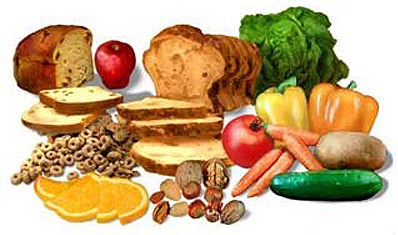 “More energy (calories) is spent digesting and absorbing high-fiber foods. In fact, if you increase your fiber intake to 35 grams a day, you’ll automatically burn 250 calories a day, without exercising more or eating less.”
“More energy (calories) is spent digesting and absorbing high-fiber foods. In fact, if you increase your fiber intake to 35 grams a day, you’ll automatically burn 250 calories a day, without exercising more or eating less.”
Besides stabilizing blood sugar, curbing appetite, accelerating the removal of fats and cholesterol from the body and improving protein metabolism, fiber lowers heart disease risk, improves blood pressure and reduces the risk of developing certain cancers. Plus, it appears to be the perfect fat burner.
What is dietary fiber? It’s the non- or partially digestible part of plants, fruits, nuts, vegetables and grains. Although fiber is considered a complex carbohydrate, it travels through the digestive system without being changed or converted into glucose. It doesn’t contain the same number of calories found in carbohydrates, nor is it processed in the same manner. As a result you get to eat a lot of good foods without a load of fattening calories. Because of the functional differences of this unique form of carbohydrate, researchers categorize fiber in two ways: soluble and insoluble.